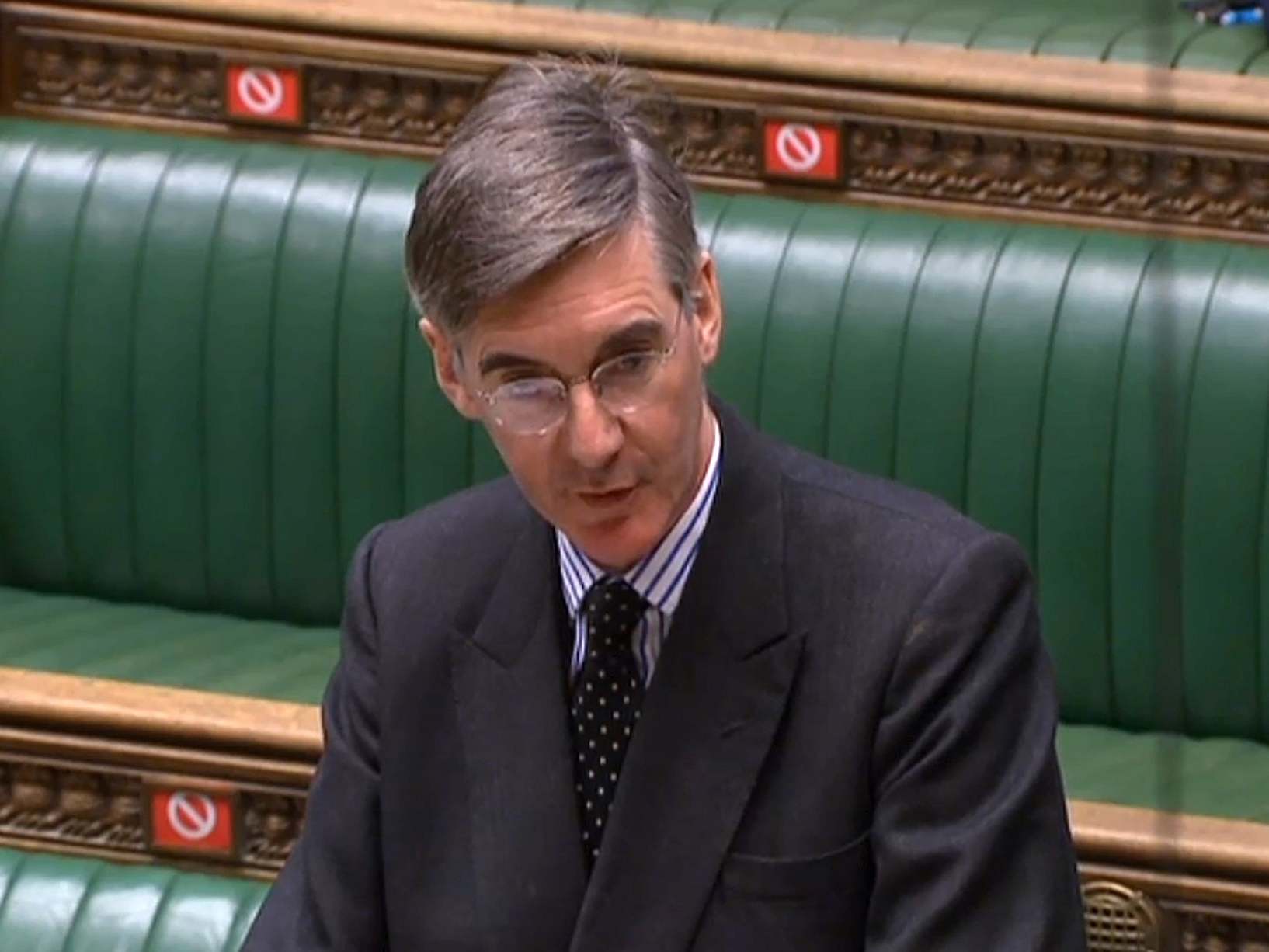
House of Commons leader Jacob Rees-Mogg has been criticised for suggesting MPs should return to Westminster within weeks to “set an example” to the public, in a move which took opposition members by surprise.
Mr Rees-Mogg said he did not want to see temporary arrangements, set up to manage the coronavirus pandemic, extended beyond the Whitsun recess, which is due to end on 2 June.
In a debate on extending measures which have allowed MPs to take part in debates via video calls, the Tory minister said: “It is my expectation that I will not have to renew these temporary standing orders again.
Download the new Independent Premium app
Sharing the full story, not just the headlines
“It is clear that soon parliament must set an example of how we move back gradually to a fully-functioning country again.”
He added: “While we must move in step with public health guidance, it is vital that when we are asking other people to work and go to their places of work if they cannot do so from home we should not be the ones who are exempt from that.”
In a response to a question from Labour MP Chris Elmore, Mr Rees-Mogg added that the return would be “based on advice from Public Health England” and social distancing would remain in place.
Labour has said the announcement was a “surprise” and accused the government of ignoring its own public health advice.
Government guidance currently says people should work from home if they can – as many MPs have been doing since last month.
The “hybrid” parliament, with a limited number of MPs at Westminster and others calling in from their homes, has been extended until 20 May, when the recess will begin.
“Today’s surprise announcement that ministers expect parliament to return to business as usual in the next few weeks and end the successful hybrid virtual system flies in the face of the government’s own public health advice and its message to work from home where possible,” a Labour spokesperson said.
The latest news on Brexit, politics and beyond direct to your inbox
“The priority must be protecting the health and well-being of all those who work in parliament.
“Ministers must publish the public health advice as a matter of urgency.”
Sir Lindsay Hoyle, the Commons Speaker, insisted on Wednesday that the safety of MPs and parliamentary staff was his “priority” and noted voting in person while maintaining social distancing could take up to an hour without electronic voting.
“Nothing in the Leader’s announcement changes the position on social distancing in and around the chamber and throughout the parliamentary estate – only changes to the guidance from Public Health England can do that, I think we’re all agreed on that,” Sir Lindsay said.
“I may suspend sittings between items of business to allow safe access to and exit [from] the chamber. I’m also quite prepared to suspend a sitting if I believe the safe number of honourable members in the chamber risks being exceeded.”
Earlier today, Angela Rayner, Labour’s deputy leader, suggested the health of MPs would be put at risk if the majority of members were forced to return to Westminster.
“Many MPs have health conditions, have to travel large distances and the chamber wouldn’t be able to cope with the 2m safe distance rule,” Ms Rayner wrote on Twitter.
Amy Leversidge, assistant general secretary of the FDA civil servants’ union, said Mr Rees-Mogg’s announcement was “incredibly concerning”.
“Staff in parliament must be protected and should only return to working physically in Westminster when it is safe to do so following a risk assessment with FDA-union and the other unions in parliament,” Ms Leversidge said.
Additional reporting by PA



